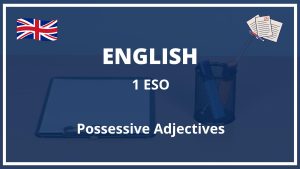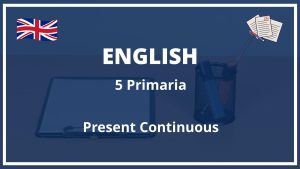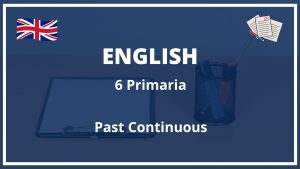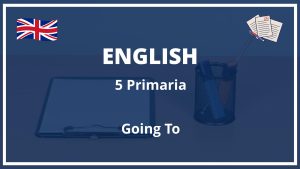
Abrir Ejercicios Have Got 1 ESO | Exercices
La forma have got se utiliza mucho en inglés para hablar de posesión, características y relaciones. A continuación, te mostramos una lista de ejemplos en los que se usa.
Posesión
Para hablar de posesión, se utiliza have got seguido del nombre del objeto poseído. También se pueden usar adjetivos posesivos como my, your, his, her, its, our, their.
Ejemplos:
- I have got a car.
- You have got a bike.
- He has got a laptop.
- She has got a phone.
- It has got four legs.
- We have got a house.
- They have got two cats.
Características
Para hablar de características, se utiliza have got seguido del adjetivo que describe la característica. En este caso, la forma correcta es have got, aunque a veces se escucha la forma has got. Esto es muy común en el inglés hablado, pero en el inglés escrito es mejor usar la forma correcta.
Ejemplos:
- I have got blue eyes.
- You have got long hair.
- He has got a big nose.
- She has got a small mouth.
- It has got two wheels.
- We have got ten fingers.
- They have got four legs.
Relaciones
Para hablar de relaciones, se utiliza have got seguido de la persona con la que se tiene la relación. También se pueden usar adjetivos posesivos como my, your, his, her, its, our, their.
Ejemplos:
- I have got a sister.
- You have got two brothers.
- He has got a girlfriend.
- She has got a boyfriend.
- It has got four legs.
- We have got two parents.
- They have got four grandparents.
Ejercicios Resueltos Have Got Ingles 1 Eso
Ejercicios Resueltos Have Got Ingles 1 Eso
Los ejercicios resueltos have got ingles 1 eso son una herramienta perfecta para aprender y practicar el uso de este verbo auxiliar en inglés. Ya que have got es uno de los verbos auxiliares más utilizados en inglés, es importante que aprendas a usarlo correctamente.
A continuación encontrarás una serie de ejercicios resueltos have got ingles 1 eso, los cuales te ayudarán a comprender mejor el uso de este verbo. Espero que estos ejercicios te sean de mucha ayuda.
Ejercicio 1:
Completa las siguientes oraciones usando el verbo have got.
I _______ a new car. (Tengo un coche nuevo.)
We _______ a big house. (Tenemos una casa grande.)
They _______ two cats. (Ellos tienen dos gatos.)
You _______ a lot of books. (Tú tienes muchos libros.)
She _______ long hair. (Ella tiene el pelo largo.)
Respuestas:
I have got a new car.
We have got a big house.
They have got two cats.
You have got a lot of books.
She has got long hair.
Ejercicio 2:
Escribe oraciones en presente simple usando el verbo have got.
I _______ a sister. (Tengo una hermana.)
You _______ blue eyes. (Tú tienes ojos azules.)
He _______ a new bike. (Él tiene una bici nueva.)
She _______ a pet. (Ella tiene una mascota.)
It _______ four legs. (Tiene cuatro patas.)
We _______ a swimming pool. (Tenemos una piscina.)
They _______ a cat. (Ellos tienen un gato.)
Respuestas:
I have got a sister.
You have got blue eyes.
He has got a new bike.
She has got a pet.
It has got four legs.
We have got a swimming pool.
They have got a cat.
Ejercicio 3:
Escribe oraciones en presente continuo usando el verbo have got.
I _______ a new car. (Tengo un coche nuevo.)
We _______ a big house. (Tenemos una casa grande.)
They _______ two cats. (Ellos tienen dos gatos.)
You _______ a lot of books. (Tú tienes muchos libros.)
She _______ long hair. (Ella tiene el pelo largo.)
Respuestas:
I am having a new car.
We are having a big house.
They are having two cats.
You are having a lot of books.
She is having long hair.
Ejercicio 4:
Escribe oraciones en pasado simple usando el verbo have got.
I _______ a sister. (Tuve una hermana.)
You _______ blue eyes. (Tú tuviste ojos azules.)
He _______ a new bike. (Él tuvo una bici nueva.)
She _______ a pet. (Ella tuvo una mascota.)
It _______ four legs. (Tenía cuatro patas.)
We _______ a swimming pool. (Teníamos una piscina.)
They _______ a cat. (Ellos tuvieron un gato.)
Respuestas:
I had a sister.
You had blue eyes.
He had a new bike.
She had a pet.
It had four legs.
We had a swimming pool.
They had a cat.
Ejercicio 5:
Escribe oraciones en pasado continuo usando el verbo have got.
I _______ a new car. (Tuve un coche nuevo.)
We _______ a big house. (Teníamos una casa grande.)
They _______ two cats. (Ellos tuvieron dos gatos.)
You _______ a lot of books. (Tú tuviste muchos libros.)
She _______ long hair. (Ella tuvo el pelo largo.)
Respuestas:
I was having a new car.
We were having a big house.
They were having two cats.
You were having a lot of books.
She was having long hair.
Ejercicio 6:
Escribe oraciones en futuro usando el verbo have got.
I _______ a sister. (Tendré una hermana.)
You _______ blue eyes. (Tú tendrás ojos azules.)
He _______ a new bike. (Él tendrá una bici nueva.)
She _______ a pet. (Ella tendrá una mascota.)
It _______ four legs. (Tendrá cuatro patas.)
We _______ a swimming pool. (Tenremos una piscina.)
They _______ a cat. (Ellos tendrán un gato.)
Respuestas:
I will have a sister.
You will have blue eyes.
He will have a new bike.
She will have a pet.
It will have four legs.
We will have a swimming pool.
They will have a cat.
Ejercicio 7:
Escribe oraciones usando el verbo have got en todos los tiempos verbales.
I _______ a sister. (Tengo/tuve/tendré una hermana.)
You _______ blue eyes. (Tú tienes/tuviste/tendrás ojos azules.)
He _______ a new bike. (Él tiene/tuvo/tendrá una bici nueva.)
She _______ a pet. (Ella tiene/tuvo/tendrá una mascota.)
It _______ four legs. (Tiene/tuvo/tendrá cuatro patas.)
We _______ a swimming pool. (Tenemos/tuvimos/tendremos una piscina.)
They _______ a cat. (Ellos tienen/tuvieron/tendrán un gato.)
Respuestas:
I have got/had/will have a sister.
You have got/had/will have blue eyes.
He has got/had/will have a new bike.
She has got/had/will have a pet.
It has got/had/will have four legs.
We have got/had/will have a swimming pool.
They have got/had/will have a cat.
Ejercicio 8:
Escribe oraciones negativas usando el verbo have got.
I _______ a sister. (No tengo una hermana.)
You _______ blue eyes. (No tienes ojos azules.)
He _______ a new bike. (No tiene una bici nueva.)
She _______ a pet. (No tiene una mascota.)
It _______ four legs. (No tiene cuatro patas.)
We _______ a swimming pool. (No tenemos una piscina.)
They _______ a cat. (No tienen un gato.)
Respuestas:
I haven’t got a sister.
You haven’t got blue eyes.
He hasn’t got a new bike.
She hasn’t got a pet.
It hasn’t got four legs.
We haven’t got a swimming pool.
They haven’t got a cat.
Ejercicio 9:
Escribe oraciones interrogativas usando el verbo have got.
_______ you a sister? (¿Tienes una hermana?)
_______ he a new bike? (¿Tiene una bici nueva?)
_______ she a pet? (¿Tiene una mascota?)
_______ it four legs? (¿Tiene cuatro patas?)
_______ we a swimming pool? (¿Tenemos una piscina?)
_______ they a cat? (¿Tienen un gato?)
Respuestas:
Do you have got a sister?
Does he have got a new bike?
Does she have got a pet?
Does it have got four legs?
Do we have got a swimming pool?
Do they have got a cat?
Ejercicio 10:
Escribe oraciones usando el verbo have got en todos los tiempos verbales interrogativos.
_______ you a sister? (¿Tienes/tuvo/tendrás una hermana?)
_______ he a new bike? (¿Tiene/tuvo/tendrá una bici nueva?)
_______ she a pet? (¿Tiene/tuvo/tendrá una mascota?)
_______ it four legs? (¿Tiene/tuvo/tendrá cuatro patas?)
_______ we a swimming pool? (¿Tenemos/tuvimos/tendremos una piscina?)
_______ they a cat? (¿Tienen/tuvieron/tendrán un gato?)
Respuestas:
Do I have got/had/will have a sister?
Does he have got/had/will have a new bike?
Does she have got/had/will have a pet?
Does it have got/had/will have four legs?
Do we have got/had/will have a swimming pool?
Do they have got/had/will have a cat?
Ejercicio 11:
Escribe oraciones usando el verbo have got en todos los tiempos verbales negativos interrogativos.
_______ you a sister? (¿No tienes una hermana?)
_______ he a new bike? (¿No tiene una bici nueva?)
_______ she a pet? (¿No tiene una mascota?)
_______ it four legs? (¿No tiene cuatro patas?)
_______ we a swimming pool? (¿No tenemos una piscina?)
_______ they a cat? (¿No tienen un gato?)
Respuestas:
Don’t you have got a sister?
Doesn’t he have got a new bike?
Doesn’t she have got a pet?
Doesn’t it have got four legs?
Don’t we have got a swimming pool?
Don’t they have got a cat?








